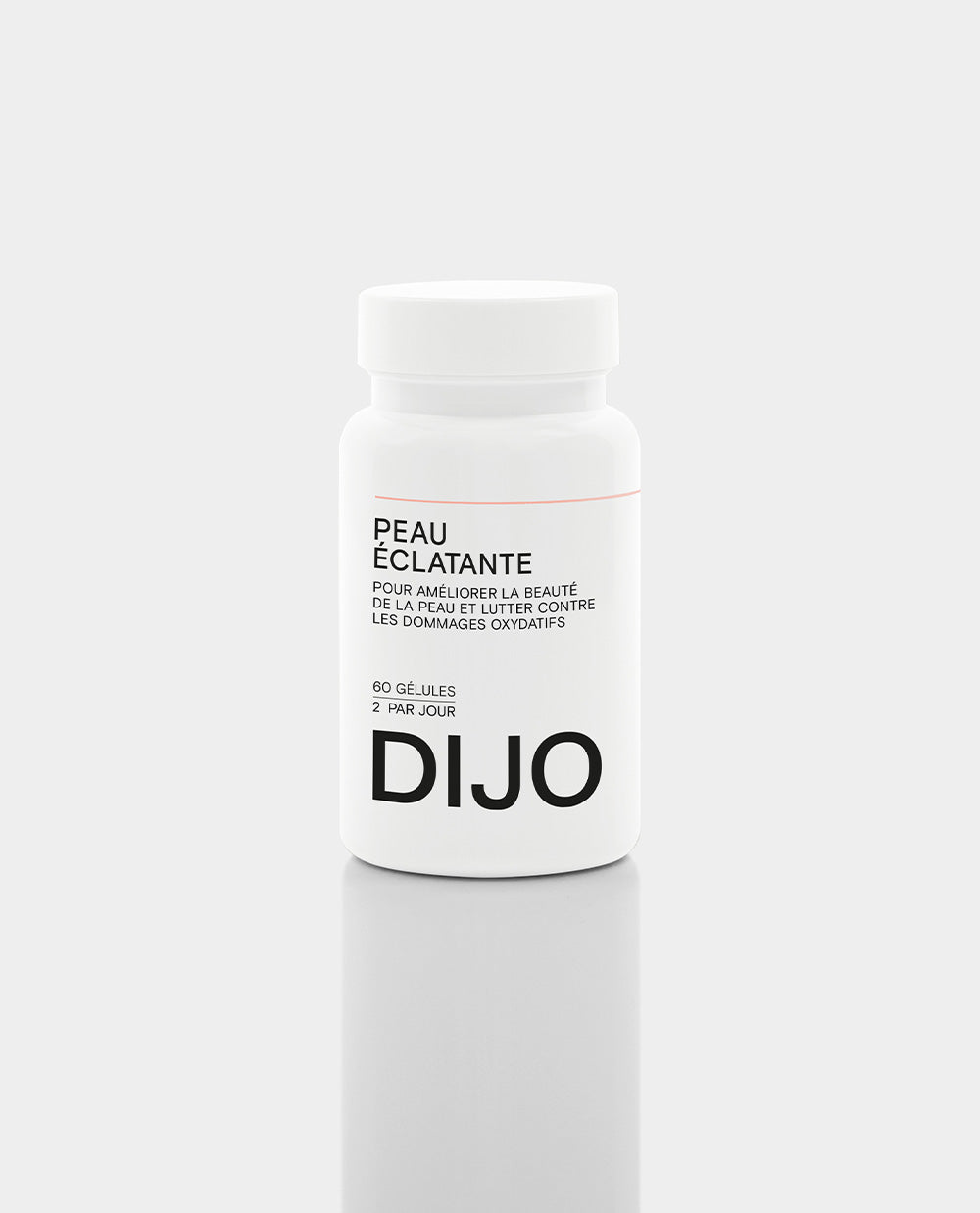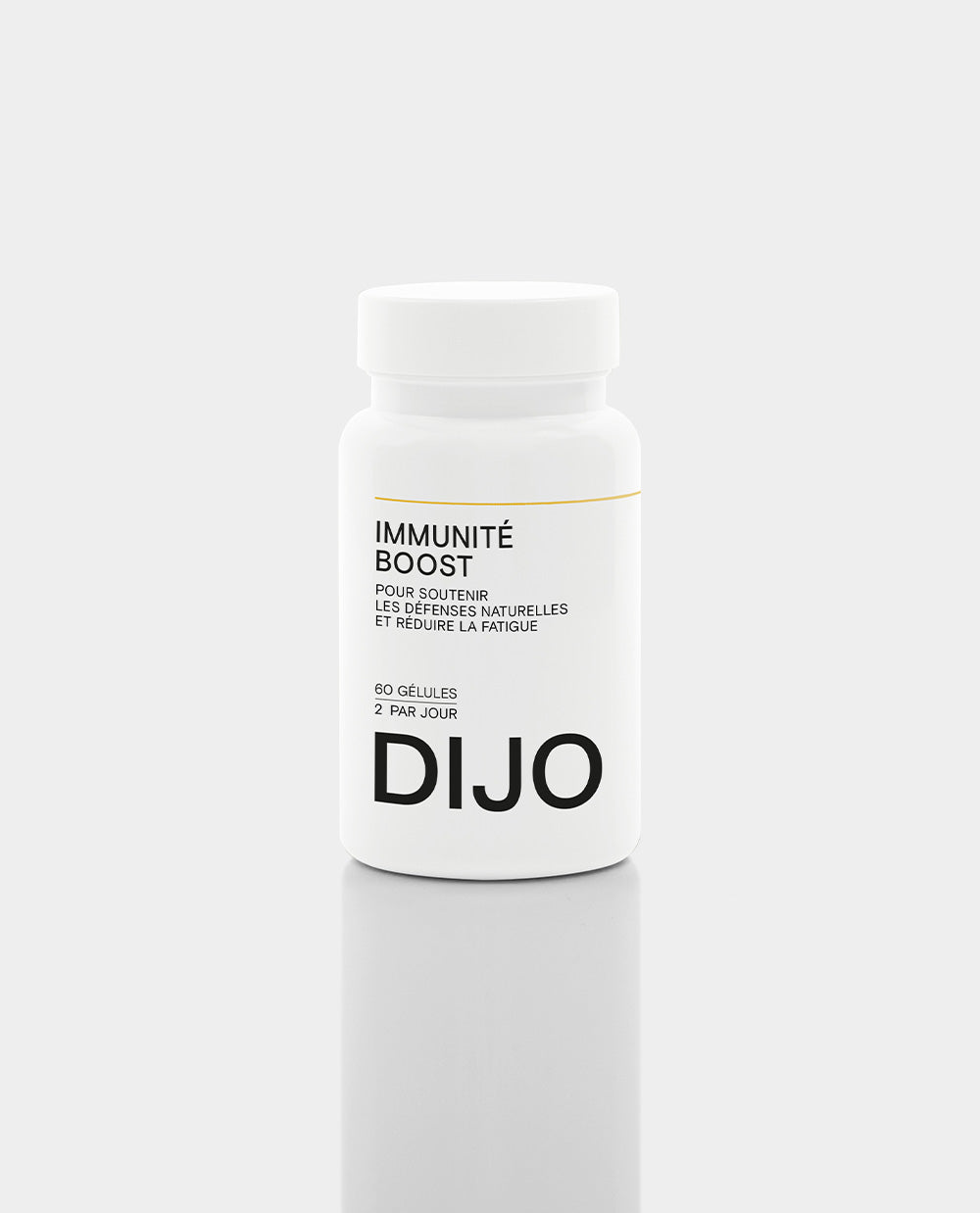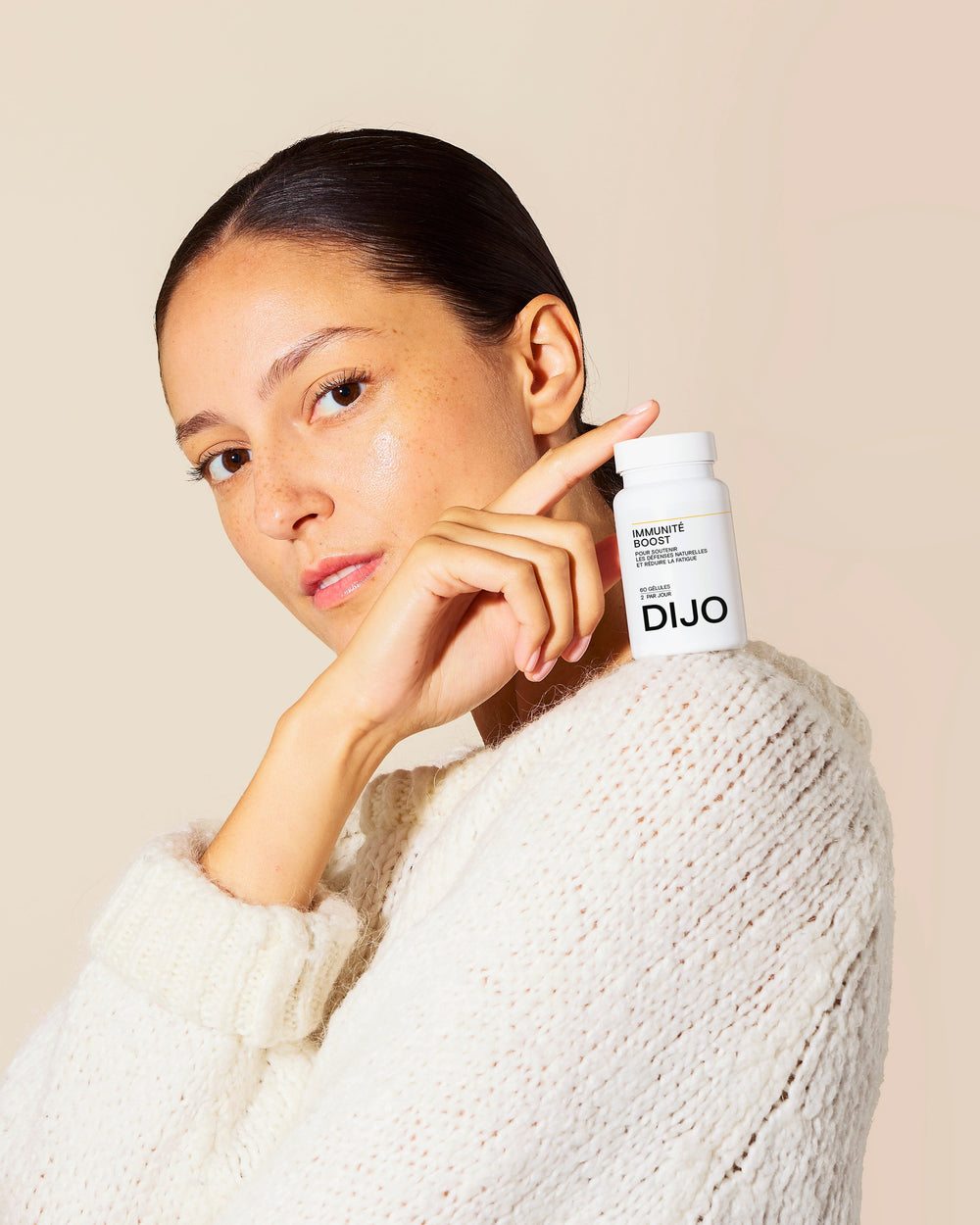What you need to remember:
- Probiotics are the good microorganisms (bacteria, viruses, fungi, yeasts) that form the intestinal microbiota.
- Prebiotics are the essential food for the development of these good bacteria.
- Providing enough prebiotics is important to ensure good development of the microbiota and enable better digestion.
- Combining the taking of both promotes synergy and ultimate symbiosis.
- Taking dietary supplements may sometimes be necessary to ensure sufficient synbiotic intake for optimal health.
Everything you need to know about probiotics
Probiotics represent the beneficial microorganisms that make up our intestinal microbiota , also called intestinal flora. This set of microorganisms is located throughout the digestive tract and mainly in the small intestine and colon. Among these microorganisms, we find good bacteria , viruses, fungi and many others. There are no less than 10,000 billion of them in this intestinal microbiota. When an imbalance occurs, we say that there is dysbiosis and porosity of the intestinal wall can then be present.
Apart from within the digestive system, these probiotics are also found within other flora of our body: skin flora, vaginal flora and oral flora.
What are probiotics used for?
A sufficient amount of probiotics in the gut microbiota is essential to ensure good functions within the body and to maintain optimal health. Good microorganisms are responsible for maintaining a good digestive, immune, brain and metabolic system. By feeding on fiber, bacteria produce compounds that are beneficial to the body and ensure optimal digestive transit. In addition, a stable microbial environment helps act as a barrier against pathogens and other toxins and facilitates good absorption of nutrients.
How to get it through food?
The main sources of probiotics in food are fermented products. Indeed, their food production process consists of seeding bacteria, yeasts or fungi, thus creating a natural fermentation. This is the case for certain dairy products such as yogurts, cheese but also sourdough bread, lacto-fermented vegetables, tofu and tempeh, kombucha, kefir and many others.
How to supplement with probiotics?
In order to compensate for the lack of probiotics in the diet, it is sometimes useful to resort to taking food supplements in order to deeply balance the intestinal flora. To do this, it is important to know how to choose the most effective probiotic treatment . The two main criteria to take into account are the composition, that is to say the different strains used as well as the concentration of the latter. A supply of lactobacillus and bifidobacterium is essential because these are the most beneficial and natural strains for the intestinal microbiota. Similarly, with regard to concentration, most studies recommend treatments of at least 10 billion CFU to observe lasting changes and benefits.
Everything you need to know about prebiotics
Prebiotics are food for good bacteria called probiotics. Dietary fiber is one of five categories of prebiotics that exist.
What are they for?
Prebiotics act as fuel for these microorganisms and allow them to develop properly to ensure optimal functioning of the body. This symbiosis between these two elements allows for better digestion, less rapid assimilation of nutrients and therefore less significant increases in blood sugar as well as prolonged satiety but also better intestinal transit by fighting against disorders such as constipation and diarrhea.
How to bring it into everyday life?
We find prebiotics in many foods in our daily lives, especially those rich in fiber. Indeed, foods richest in fiber such as cereals, legumes, oilseeds and raw fruits and vegetables provide a good intake. However, sometimes this intake is not sufficient, which is why supplementation becomes interesting.
Why combine taking probiotics and prebiotics?
Probiotics and prebiotics act in true symbiosis. Thanks to prebiotics, probiotics ensure their proper development and produce compounds such as Short Chain Fatty Acids (SCFA) or postbiotics essential for the proper functioning of the body and in particular the digestive system. These symbiotics act in synergy and allow a faster and deeper feeling of benefits. Studies also highlight their positive impacts on the body: better nutritional absorption, better immunity, reduced inflammation, communication with the brain machinery facilitated by supporting cognitive functions.
Bringing synbiotics with DIJO supplements
In addition to a balanced lifestyle and a varied diet, taking food supplements can sometimes be necessary to meet the body's needs. This is why, at DIJO, we have chosen to offer you real symbiotic cures based on probiotics thanks to our Indispensable probiotics as well as flavonoids with a prebiotic effect thanks to our different products Focus weight , Radiant skin and Immunity boost . We have added plants and vitamins and minerals to strengthen the effectiveness of these cures while targeting specific common problems.
Sources :
[1] Sanders ME, Merenstein DJ, Reid G, Gibson GR, Rastall RA. Probiotics and prebiotics in intestinal health and disease: from biology to the clinic. Nat Rev Gastroenterol Hepatol. 2019 Oct;16(10):605-616. doi:10.1038/s41575-019-0173-3. Epub 2019 Jul 11. Erratum in: Nat Rev Gastroenterol Hepatol. 2019 Oct;16(10):642. doi:10.1038/s41575-019-0199-6. PMID: 31296969.
[2] Guarino MPL, Altomare A, Emerenziani S, Di Rosa C, Ribolsi M, Balestrieri P, Iovino P, Rocchi G, Cicala M. Mechanisms of Action of Prebiotics and Their Effects on Gastro-Intestinal Disorders in Adults. Nutrients. 2020 Apr 9;12(4):1037. doi:10.3390/nu12041037. PMID: 32283802; PMCID: PMC7231265.
[3] Pandey KR, Naik SR, Vakil BV. Probiotics, prebiotics and synbiotics- a review. J Food Sci Technol. 2015 Dec;52(12):7577-87. doi:10.1007/s13197-015-1921-1. Epub 2015 Jul 22. PMID: 26604335; PMCID: PMC4648921.






















